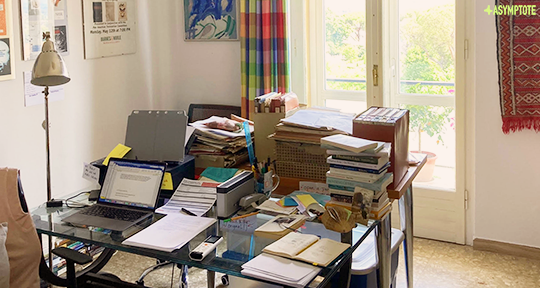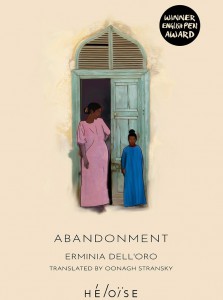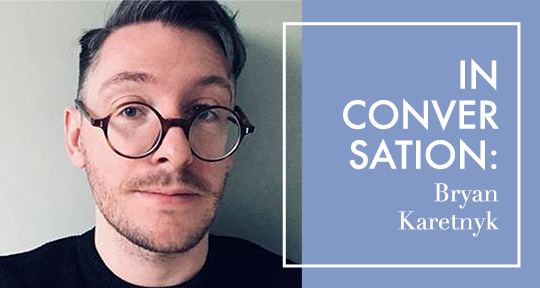A perilous question always hangs over the works of exiled writers: travelling amidst the turmoil of history, where is their place? For the Russian novelist and critic Yuri Felsen, who perished in Auschwitz in 1943, the Anglosphere’s answer only recently emerged by way of translator Bryan Karetnyk, who has lifted Felsen’s works from obscurity and translated them into English—for the first time into any language other than Russian. In a challenging, original trilogy that employs modernist aesthetics, intercultural crossroads, linguistic experiments, and the soul within time, Felsen layered a masterful prose over reality, beyond singular country or era. His place, it appears, can be located within the complexities of any contemporality intersecting with literature. The first novel of the trilogy, Deceit, was published by Prototype in 2022, and the second, Happiness, is due out in 2025. Karetnyk was awarded a PEN Translates award for the latter, and in this interview, he speaks to us on Felsen’s Proustian style, what these works demand of their translator, and how they resonate through the English language.
Xiao Yue Shan (XYS): One of the most striking aspects of Yuri Felsen’s work is his wield and command of the long sentence and his elaborate, crescendo-ing clauses. While translating, was there any element you prioritised—rhythm, texture, balance—in order to maintain the delicate construction and dexterity of the lines? What do you feel is the most important aspect to preserve in the movement from Russian to English?
Bryan Karetnyk (BK): I’ve lived with Felsen’s prose (and been haunted by it) for almost a decade now, and one thing I continue to be struck by, whenever I return to any one of his works, is his keen ability to make every sentence tell a story in itself. Russian literature of course is no stranger to long sentences, but what sets Felsen’s prose apart from others is the degree to which all his cascading clauses are so interdependent on one another. You just cannot break them down into smaller units, so he necessarily asks his readers to hold a considerable amount of information in their consciousness over the course of a single period. No matter whether he’s describing external events or the narrator’s inner world, each of his sentences has, as it were, a distinct, baroque narrative arc that follows the narrator’s intense ratiocination—the result of which is that his lines twist and turn in unexpected ways, creating a dynamic tension that is as much psychological as it is rhetorical.
As a translator, the primary duty, as I see it, is always to reproduce that carefully crafted narrative-psychological arc—the exposition, the conflict, the climax, the denouement, the segue into the next thought—all in a way that brings life to the soliloquy. Structurally speaking, one has to emulate the architecture of his phrasing by paying attention to rhythm, tempo, poise—the point and counterpoint of his rhetoric; yet, at the same time, that cannot distract from the demands placed on word choice, which presents its own set of challenges and is so vital in creating texture as well as meaning. Felsen’s narrator is always in search of the mot juste, and, together with a fondness for abstraction, he has a habit of using words idiosyncratically—impressionistically even, rarely in the straight dictionary sense. So often, the texts seem to strain at the limits of what is articulable (he seldom seems to find that mot—if it even exists), and you can never quite escape the sense that some shade of nuance remains forever just out of reach. But I think there’s a profound beauty in that. READ MORE…




